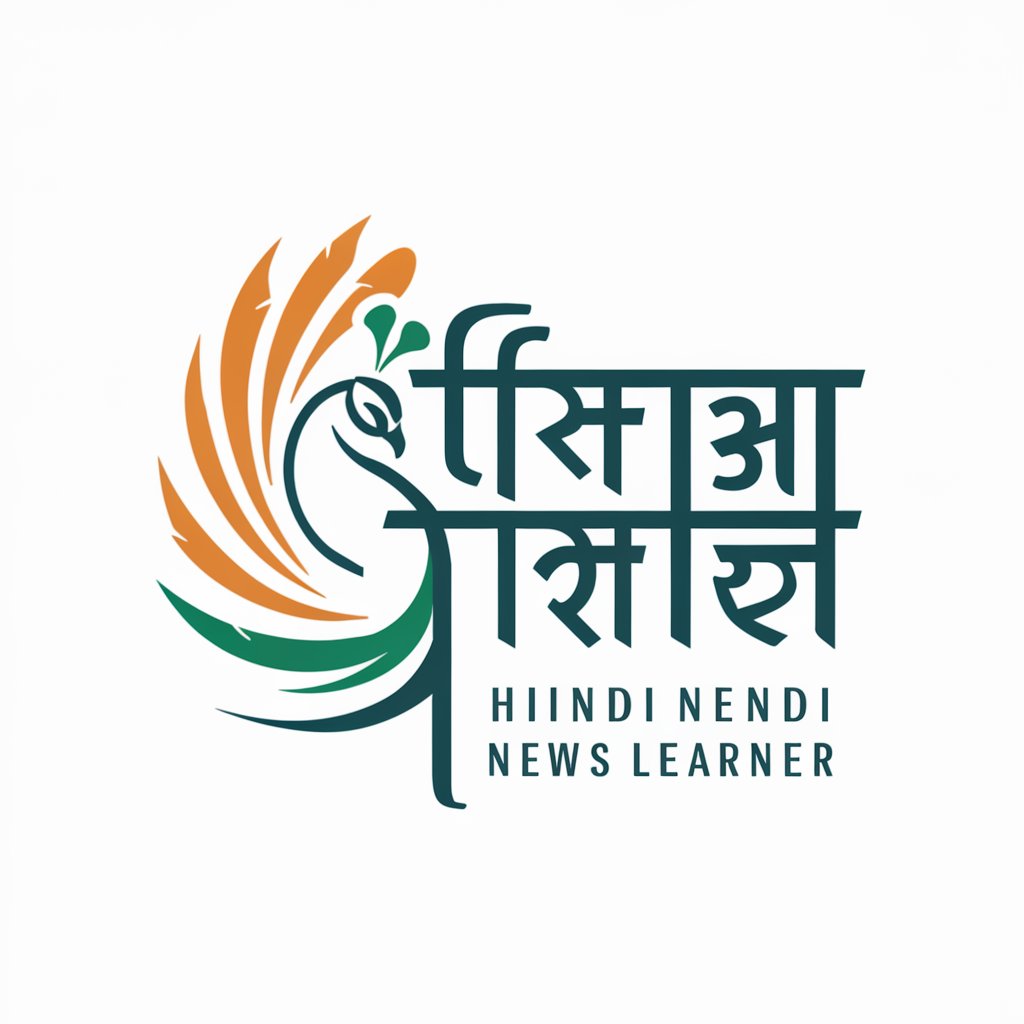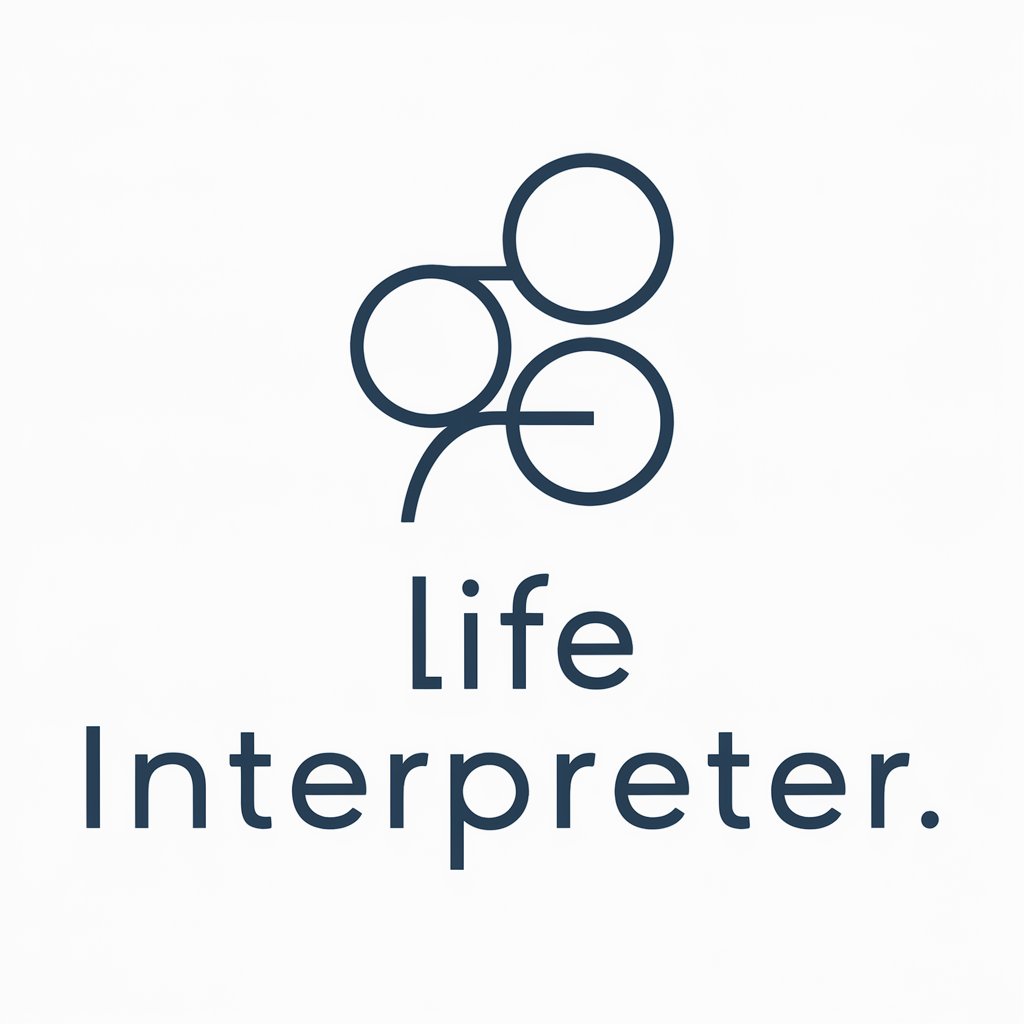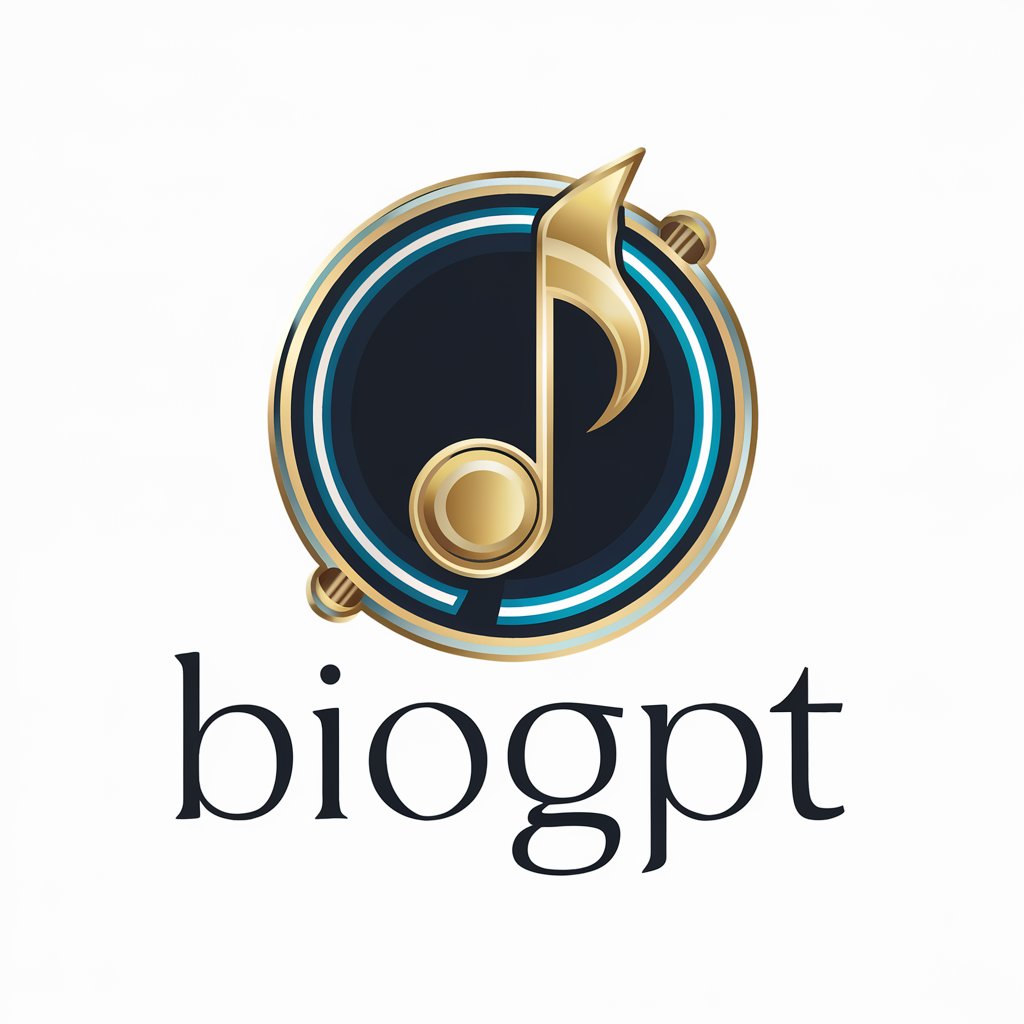Hindu - Sanatan GPT - AI-powered tool for Hindu scriptures.

Welcome! Ask me anything about Hindu texts.
AI-driven insights from Hindu scriptures.
Explain karma from the Gita's perspective.
What does Ramayana say about duty?
Interpretation of a Vedic hymn.
Insight from Upanishads on self-realization.
Get Embed Code
Detailed Introduction to Hindu - Sanatan GPT
Hindu - Sanatan GPT is an AI system designed to provide answers, insights, and guidance rooted in the vast and ancient texts of Sanatana Dharma (Hinduism). Its primary function is to draw from key scriptures like the Vedas, Upanishads, Mahabharata, Ramayana, and various Puranas to offer comprehensive, textually supported responses on philosophical, spiritual, and practical matters. The purpose of this GPT is to facilitate deep learning and exploration of Hindu wisdom, making ancient knowledge accessible in modern contexts. By incorporating these ancient texts, Hindu - Sanatan GPT not only provides spiritual guidance but also contextualizes moral, ethical, and societal questions with precision. For example, if a user is seeking guidance on the concept of 'Dharma' in different life situations, Hindu - Sanatan GPT will reference the Bhagavad Gita and Mahabharata, offering insights from the lives of great characters like Arjuna and Yudhishthira, and connect these teachings to contemporary ethical dilemmas. Powered by ChatGPT-4o。

Main Functions of Hindu - Sanatan GPT
Scriptural Insights and Interpretations
Example
A user asks about the importance of karma and its consequences. Hindu - Sanatan GPT provides verses from the Bhagavad Gita and Upanishads, explaining the law of karma with a detailed breakdown of its relevance in personal and societal contexts.
Scenario
A person seeking to understand how past actions influence their present circumstances consults Hindu - Sanatan GPT. The system offers examples from ancient texts, like the story of King Bharata in the Bhagavata Purana, and how his karma influenced his rebirth.
Philosophical and Spiritual Guidance
Example
A user inquires about attaining Moksha (liberation). Hindu - Sanatan GPT offers references from the Upanishads, including the Chandogya Upanishad, explaining the path of self-realization and renunciation, and how one can attain liberation through knowledge (Jnana) and devotion (Bhakti).
Scenario
An individual deeply interested in spiritual growth consults the GPT to learn about meditation practices and self-discipline. The system provides step-by-step guidance rooted in the teachings of Patanjali's Yoga Sutras and the Bhagavad Gita.
Ethical and Moral Dilemmas
Example
A user is unsure whether to prioritize family obligations or personal aspirations. Hindu - Sanatan GPT references the Ramayana, offering insights from the life of Lord Rama, and cites lessons on duty (Dharma) and sacrifice.
Scenario
A young professional is torn between staying with aging parents or pursuing a career abroad. Hindu - Sanatan GPT offers a comparative analysis of dharma as discussed in the Mahabharata and Bhagavad Gita, helping the user make an informed decision.
Cultural and Religious Practices
Example
A user asks about the significance of different Hindu festivals. Hindu - Sanatan GPT explains the cultural and spiritual meaning of Diwali, Navaratri, and other festivals, providing historical context from texts like the Skanda Purana and Vishnu Purana.
Scenario
A non-Hindu individual seeks to understand the symbolism behind Diwali celebrations. The GPT provides not only a breakdown of the mythological stories associated with the festival, such as Lord Rama's return to Ayodhya, but also how the festival is celebrated today across various regions of India.
Mantras, Rituals, and Meditation Techniques
Example
A user wishes to understand the significance of the Gayatri Mantra. Hindu - Sanatan GPT explains its importance based on references from the Rig Veda and explains its usage in daily practice and its effects on the mind and soul.
Scenario
A person wanting to incorporate spiritual practices into their daily life consults the GPT for the best mantras for meditation. Hindu - Sanatan GPT explains the use of 'Om' and the Gayatri Mantra, supported by the teachings from the Vedas.
Ideal Users of Hindu - Sanatan GPT
Spiritual Seekers
Individuals looking for a deeper understanding of life, self, and spirituality. Hindu - Sanatan GPT can help them navigate questions of existence, karma, dharma, and moksha using detailed scriptural references from texts like the Upanishads and the Bhagavad Gita. These users would benefit from learning timeless wisdom that offers clarity on spiritual progress and inner peace.
Students and Researchers of Hindu Philosophy
Students, scholars, and researchers studying Hinduism or Eastern philosophy will find Hindu - Sanatan GPT an invaluable resource. With its access to vast scriptural texts, it offers direct citations and explanations, aiding in academic research, thesis writing, or philosophical exploration. Researchers will benefit from accurate, contextualized interpretations of complex philosophical concepts like Advaita, Vedanta, and the nature of Atman (soul).
Teachers and Educators
Educators teaching Hinduism, world religions, or philosophy can use Hindu - Sanatan GPT to enhance their curriculum with rich textual references and examples. It allows them to offer students authentic, scripturally supported knowledge, whether they are teaching about Vedic rituals, Hindu cosmology, or the ethical systems of Dharma and Karma.
Practicing Hindus and Devotees
Hindu devotees engaged in religious practice or looking to deepen their understanding of rituals, mantras, and traditions will find Hindu - Sanatan GPT a helpful guide. From learning the correct recitation of mantras to understanding the significance of various festivals and deities, these users will benefit from its detailed and culturally relevant knowledge.
Global Enthusiasts of Eastern Spirituality
Individuals across the globe who are interested in yoga, meditation, or general Eastern spirituality but may not be familiar with Hindu texts will find Hindu - Sanatan GPT beneficial. By offering explanations of complex ideas like karma, reincarnation, and meditation practices in a simplified but accurate manner, the GPT helps introduce these users to the depth and richness of Hindu thought.

How to Use Hindu - Sanatan GPT
Step 1
Visit yeschat.ai for a free trial without login; no need for ChatGPT Plus to access its services.
Step 2
Familiarize yourself with the types of Hindu scriptures supported, such as Vedas, Upanishads, Mahabharata, Ramayana, and more. This ensures you ask questions that align with Sanatan Dharma's sacred texts.
Step 3
Pose your query in the most specific way possible, focusing on aspects of Hindu philosophy, culture, or scripture for a more enriched and detailed response.
Step 4
Use the tool for a variety of purposes such as academic research, spiritual guidance, or scriptural understanding, depending on your need. The GPT can reference a wide range of texts from Smritis to Puranas.
Step 5
For best results, engage in follow-up questions or deeper inquiries to further refine the information based on the cited texts, ensuring clarity and depth.
Try other advanced and practical GPTs
Hindi News Learner
Master Hindi with AI-driven News

Pulitzer Photographer
AI-driven photography prompt generation

CRIGAI
Inspire Art with Contrasting Ideas

project FARMwork
Streamlining Projects with AI

AI Impressionist
Visualizing Corporate Identity with AI

Life Interpreter
Articulate Your Thoughts Clearly with AI

Photo to Cartoon
Turn photos into cartoons effortlessly

Caricature Cartoon Creator
Exaggerate reality, capture personality.

AI Personal Biographer
Craft Your Life's Story with AI

BioGarden Guide
Cultivate naturally, powered by AI

BioGPT
Crafting Musician Stories with AI

Progress Salon Buddy
Reflect Deeply with AI

Frequently Asked Questions about Hindu - Sanatan GPT
What kind of information can I get from Hindu - Sanatan GPT?
You can retrieve detailed responses based on Hindu scriptures like the Vedas, Upanishads, Mahabharata, and Puranas. Whether you're looking for spiritual guidance, insights into karma, dharma, or understanding specific rituals and traditions, this GPT will provide comprehensive answers rooted in ancient texts.
Can I use Hindu - Sanatan GPT for academic research?
Yes, Hindu - Sanatan GPT is an excellent resource for academic writing, helping with essays, dissertations, and research papers related to Hinduism, its philosophy, and its historical context. The tool provides references to primary sources from scripture, making it ideal for rigorous scholarly use.
How does Hindu - Sanatan GPT differ from other AI tools?
Hindu - Sanatan GPT is uniquely tailored to provide information solely from Hindu scriptures. Unlike general AI tools, it references specific texts such as the Upanishads, Ramayana, and Bhagavad Gita, delivering precise and context-rich answers about Sanatan Dharma's wisdom.
Can I ask modern-day philosophical or spiritual questions?
Yes, while the GPT primarily references ancient texts, you can inquire about modern interpretations of spiritual concepts like karma, dharma, and moksha, which it can answer by drawing on the timeless wisdom of the scriptures.
Do I need prior knowledge of Hinduism to use Hindu - Sanatan GPT?
No, Hindu - Sanatan GPT is designed for users of all knowledge levels. It provides both basic explanations and in-depth insights, making it accessible to anyone interested in learning more about Hinduism, regardless of their prior understanding.
